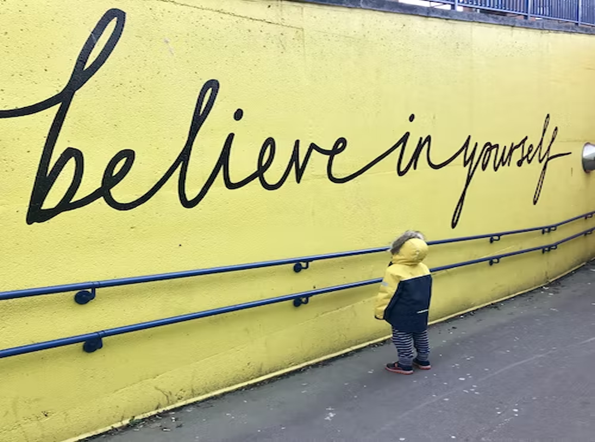
“Believe you can, and you are halfway there.”
-Theodore Roosevelt-
How does interviewing and introverts work? Well, to be completely candid, I’m and introvert. I talk about this in every class especially as we get to the subject of rapport. Most people doubt it because I do training for a living, but it can be done. It is a matter of knowing your mission and goals, and then preparing and planning to make them happen.
I used the word “enjoy” in this title for a reason. Social confidence is important for building relationships. This is true of the introvert, the extrovert and the average person who is somewhere between those two personality extremes.
You can enjoy a much more successful career when you have powerful social skills. Your personal relationships benefit, as well. The person who’s confident when interacting with others has a high level of self-esteem. They enjoy a powerful self-belief that they are capable in social situations, and this is important professionally and personally.
This is not to say that introverts don’t have wonderful and rewarding lives. They simply have a view of their best life that’s often different from an extroverted person. Not better or worse, just different. Isn’t that true of many areas of life. How tolerant are we of that? (A blog for another day.)
By the way, it’s often believed that introverts despise interacting with people. That’s seldom the case. It’s simply that they would prefer to spend more time on their own. That’s how they recharge their batteries. The extroverted person does the same thing by spending a lot of time with other people. Each of these individuals is different in many ways, and no one approach is worse or better than the other. They are just different.
That having been said, introverts often desire better skills at socializing. They understand they could improve some aspect of their life if they had more confidence when dealing with people. If this sounds like you, I’m here to help; I get it. Additionally, if you are that out there extrovert, you may pick up some ideas for controlling that outward focus for the professional setting.
Here are 4 ways that have been proven to help introverts build confidence in social settings.
1 – Don’t Overdo It
Introverts can enjoy socializing just as much as extroverts. In many cases they do. The difference is that the introverted person loses physical and mental energy from socializing too frequently or for too long.
If you want to perform better in social situations, limit your exposure. Pick your battles. Don’t try to drink from a fire hydrant. Plan short periods of time where you’re going to hone your social skills over the next week or month. When you feel your energy starts to wane, return home or wherever it is you feel most comfortable recharging your batteries.
This happens frequently when I am teaching. I will go all day, talk non-stop (for anyone that has been in my classes you know this) but when evening comes, I retreat, regroup, read, relax, and get ready for the next day. I guess I have used up all my words.
2 – Prepare Ahead of Time
You might be an introvert that doesn’t have much experience interacting with others. That’s okay. You can learn how to socialize. Do some planning before you know you’re going to deal with others.
Think of the conversation and engagement beforehand. What’s the environment going to be like? Who’s going to be there? This type of homework can help you succeed in social situations and become more confident and capable.
If you have followed me for any period you know, I speak about planning, preparation, and strategizing all the time. It is essential to the business of interviewing, investigations, and auditing and needs to be completed exhaustively. This is yet another area that we should prepare and plan to be ready for.
3 – Remember … Rome Wasn’t Built in a Day
The old saying that it took a long time to build one of the greatest civilizations in human history is important here. Big accomplishments don’t happen overnight. If you are extremely introverted, work on one step at a time to become more proficient in your interactions. Get confident with each step you make, and each goal realized.
Maybe the first thing you want to do is get comfortable exploring a greater depth of rapport in your interviews. Work through casual rapport to close rapport, and venture into establishing intimate rapport. Find those topics where you have commonality and dig deeper. If that’s a big deal for you, give yourself a huge pat on the back!
You did great. Once you’re comfortable with employing that, then work to dig deeper. Establish themes in conversation. As your comfort goes up, your anxiety will decrease, and your confidence and credibility will be evident. When this occurs, you will be able to listen and understand better and it will not task your energy level as much. Take one small step at a time and before you know it, you’ll have walked a mile down the road to improving your social skills.
4 – Look at Rejection like a Successful Salesperson
The best salespeople get excited when they hear, “No.” They know that every rejection gets them closer to making their next sale. You can look at social rejection the same way. See the situation objectively. What can you learn? What did you do right? What did you do wrong? Take rejection or social failure as an opportunity to get better, and then move on. I have done interviews for going on 40 years and never completed one that I was totally happy with. There are always lessons to be gleaned from experience. Take the opportunity and fine-tune those skills.
Introverts aren’t necessarily scared of people. They usually aren’t. They just prefer to spend a minimal amount of time in the presence of others. If this is you, and you want to build your social confidence, the tips I just shared with you can help. They make you feel more comfortable when interacting with people and your confidence and credibility will expand. You’ll also be proud of yourself for stepping out of your comfort zone.
As an extrovert or introvert are you challenging yourself to improve your skills and minimize your obstacles? Or is that too much work? Have you become a “quiet quitter” who doesn’t have the personal passion to improve regardless of what’s going on around you? This skill development will benefit your work life but is far-reaching in holistically developing your personal satisfaction. Let’s get to it!
Anderson Investigative Associates is positioned to custom-tailor training to your specific needs. If you have any questions or would like to discuss the above topic of social confidence and how to grow it or any training need, please reach out. Additional issues pertaining to interviewing, auditing, and investigations can be found in other blogs and videos that I have produced and are contained in most blocks of instruction that our company presents.
If you have additional questions, comments, or have an interviewing topic you would like me to address, give me a shout. In the meantime, be well, stay safe out there, and let’s be about building social confidence.
Mark A. Anderson
Director of Training and Development
Anderson Investigative Associates, llc
114 Loucks Avenue
Scottdale, PA 15683
manderson@andersoninvestigative.com
tel:912-571-6686
https://www.linkedin.com/in/mark-a-anderson-a46a1658
.
